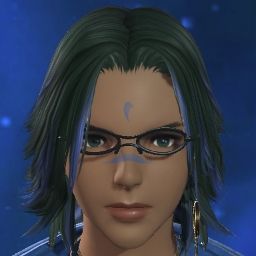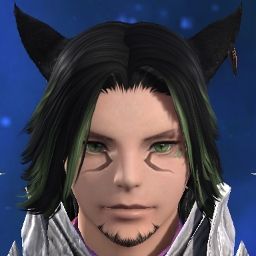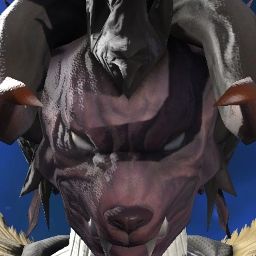Personally I'd consider that to be plastering on another badly written story aspect just for the sake of Lahabrea bad, which is well past boring at this point. Part of the issue here is all the things tempering can be. If we strip it down to its most basic, i.e. aligning the summoner to the primal's aether, Zodiark appears to have done that as a minimum, but by all appearances not much more beyond that. I suspect the reason they were tempered is because of the sheer amount of power that went into him. At the same time, its consequences appear to be limited to loss of identity and memory if the summoners don't make an effort to preserve these, as Emet did. But at the same time, he is not the type of primal with a will that compels their summoners to do anything, especially since Elidibus is in his driver seat and without him, he's more or less an automaton. For the sort of tempering we see with the beast tribes to manifest, it is not mere alignment to the primal's aether, but down to further elements: 1) flawed rites that instil in the summoners a desire to spread their zeal by tempering others and 2) the nature of the primal (=desire to compel servitude) and an associated desire to temper beyond the original summoners where the tempering is a mere side-effect of the summoning. Ramuh for example lacked aspect 2, but still exhibits 1, so his summoners still have that desire.
The point here is that there's many aspects to tempering, and not all forms of it are made equal, and none of it would specifically require a plot like the above. Zodiark's tempering primarily appears to be invoked to explain why Elidibus and Lahabrea suffered memory/identity decay over time, to explain dialogue from ARR and HW in all probability that needed to be re-purposed. Meanwhile, Emet-Selch is quite able to deviate from the original plan where he deems it necessary, because the plan was never formed out of servitude to Zodiark but in order to restore the broken star.
I don't think the explanation given with the Loporrit dialogue was the best, because it is clear that regular summonings also involve aetheric corruption and it's not just a matter of zeal, so we have to assume there's other aspects here as to why tempering is not an issue for these specific summonings (maybe the primals are not potent enough relative to summoners for it to matter, for whatever reason.) This is supported by what Rokke mentions, as in the Japanese version it is indeed Zodiark's power which the Loporrit mention would make the difference, so it'd suggest even if you use the correct rituals, if the entity is powerful enough it can affect the summoners' aether.
Having done them, I can say that there is little suggesting it one way or another regarding their own origins. His "test" is formulated out of little more than spite, IMO, and he is quite happy to damn his supposedly beloved creations with the rest of the universe when it suits him.Hermes has been argued to death that his actions don't match his words. The way he treated Metion does not match to what he preaches. It almost seems that Hermes himself doesn't even know what he's talking about. He's upset that his mentor would chose to retire, then changes his tune a bit saying "death is only beautiful for man". Metion can't eat, which shows he didn't intend for her to live her only life, only live for her purpose. His ending statement about how man judges all life, so he as the chief of Elpis, will judge man. Not all life was judged though, since it's presumed there was non created life that existed. Man can't be judged as a creation because they aren't a creation...or are they? I haven't done the side quests, but if the ancients could transform then they could easily alter anything they don't like about themselves. Could they have potentially over time, altered themselves and passed that on through generations? I'm wanting to sit down and do all the sidequests, so maybe this is already answered, but I find it strange be are presented more background information about the 5th zones races then we have with the ancients.
She implies during her dialogue that he was so much more potent that she had to do the latter in order to do the former. It fits rather poorly with the post-Elpis scene, because there you get the impression her ultimate goal was to sunder the ancients, one and all, either way, but I suppose in her original plan maybe she hoped to get away with not doing it to the star and being strong enough to defeat Zodiark without the need to do so... only he was much more powerful, even without a driver (the "wisdom" of her plan notwithstanding.) That cutscene is pretty awful because it glosses over key aspects of the conflict between her faction and the remaining ancients as originally detailed, and also makes her seem unreasonable in my eyes.Hydaelyn not only defeated Zodiark but completely sundered the world.
Anyway, all interesting questions, but I doubt we'll get answers to anything like a majority of those.
No, they had emotions, and it's explored in quite a bit of depth in the sidequests. It's more that it took stronger emotions on their part to influence the entelechies because of their dense aether. But the idea that they lacked emotions is not supported by the lore, nor is the idea that they had "super basic" interests. As for Hermes, he could not understand the concept of life having meaning in the face of death, which remains a facet of his persona as Amon, a sundered being, which Xande's nihilism upon encountering death reawakens in him. Little did he expect that no other civilisation would provide this answer...
-
02-01-2022 04:58 AM #911Player

- Join Date
- Jul 2015
- Location
- Amaurot
- Posts
- 4,449
- Character
- Tristain Archambeau
- World
- Cerberus
- Main Class
- Black Mage Lv 90
(14)Last edited by Lauront; 02-01-2022 at 07:05 AM.
When the game's story becomes self-aware:

-
02-01-2022 05:50 AM
Player
- Reason
- We're now stalking people on Twitter over this shit, I'm out.
-
02-01-2022 08:22 AM #912
I am pretty sure she was already Hydaelyn at that point.
In SHB when we see the records where they talk about creating Hydaelyn and Venat becoming her heart she mentions that she'll be able to take the form she wants.
So she was already Hydaelyn she was just using the form of Venat the same way that she manifests as Venat when we see her at the end of SHB and the start of EW.
Emet said in SHB that Hydaelyn and Zodiark had been fighting for a long time before the sundering happened, so the way I interpreted it at least is that Hydaelyn viewed the sundering as a sort of desperate measure because the Ancients wouldn't stop turning to Zodiark.
In the big cutscene in EW she should already have fought Zodiark before to a stalemate.
The way I interpreted it at least is that the sundering was essentially an act of desperation to end the circle and because the Ancients kept sacrificing themselves and relying on Zodiark and she couldn't deal with Zodiark without desperate measures.
Otherwise I dunno why Emet would've emphasized that they '' fought and fought and fought etc ''.
Hydaelyn may have had the power to sunder the world as a means to deal with Zodiark temporarily/ imprison him but not kill him.
But it doesn't seem like she had the power to subdue him without such desperate means.
And she had the Ancients just constantly empowering him back again it was a futile effort and fight the sundering from her pov seem'd rather necessary.
I mean either that or start slaughtering her own people I guess?(4)Last edited by Kolsykol; 02-01-2022 at 08:24 AM.
-
02-01-2022 08:37 AM #913
Imo I like how bold it was, I feel like too few stories takes actual risks.
The fact that people think that the soft GoW reboot was '' risky '' is just hilarious to me especially when comparing it to something like EW and the rather slow but rewarding approach of FFXIV overall.
The game was the definition of safe and based on current trends.
It's refreshing to get a game that doesn't play it safe and can be divisive.
It's just sad to me that it doesn't get rewarded as much for it as the games that play it safe.
It's the same with movies too big budget movies produced in a boardroom by suits and with checklists of everything currently trending makes the big bucks the movies that take risks and do something new and fresh generally don't.
I don't think most people want to be challenged in any way.
I mean people complain about how formulaic and repetitive games are and yet are very quick to demonize anything that takes risks and does something different.
People will complain about movies being so unoriginal and generic too but then not watch movies that do something new and treat every big movie that tries something new like a crime against humanity.(4)Last edited by Kolsykol; 02-01-2022 at 08:40 AM.
-
02-01-2022 08:45 AM #914
I think a big problem with that cutscene was that it wasn't at all clear what was metaphor, what was not, and when it took place.
My interpretation of it is as follows:
1. First sacrifice happened.
2. Second was about to happen.
3. Venat confronted the Ancients in the scene, and that's when she decided to oppose any future attempts at summoning Zodiark. I don't believe that was the Sundering scene, I just think it's when she resolved to oppose Zodiark. It's just that the opposition was a little more violent rather than merely diplomatic and political.
4. The second happened. The laws of the world were weaved anew, and new life was breathed into the world.
5. -unknown gap of time-
6. Debate over the third sacrifice happened.
7. -unknown gap of time-
8. Hydaelyn vs Zodiark happened.
I also don't believe the time travel part was necessarily contradictory, I just think it's unclear how the rules work. If they never explain why the Exarch could change the past while our actions could not, though, then yeah. It's a problem. They might've actually done that, but I don't remember if they did. I think it's possible to read in between the lines and figure out a good explanation, but if something is a mechanic inherent to how the world functions, I don't think it's best to go that route.
I just think people are shit at media analysis.(2)
-
02-01-2022 08:58 AM #915Player

- Join Date
- Feb 2021
- Posts
- 3,472
- Character
- Kizuya Katogami
- World
- Cerberus
- Main Class
- Conjurer Lv 81
tbh one of my problems with the expansions is they didn’t really take many risks at all. They didn’t see a risk by having there be any consequences for the main cast. They didn’t take a risk by making the apocalypse feel like an actual apocalypse and leave some permanent scars in the world. It just felt like it was played very safe. They overdosed the expansion with nostalgia and emotional manipulation and feelz instead of focusing on the actual story elements.
(16)
-
02-01-2022 10:12 AM #916Player

- Join Date
- Jun 2015
- Posts
- 5,489
- Character
- Thalia Beckford
- World
- Jenova
- Main Class
- Gunbreaker Lv 100
Yeah that was something I noticed as well. In the short story about Azem and the grapes, it's mentioned Azem has been censured more than once by the Convocation and Emet calls Azem a "divisive figure".
But all we know about Azem's activities is that Azem goes out and helps people and actually experiences the world. Emet never gave the impression that Azem goes out and does bad things. I definitely got the impression that Azem is this controversial not because they were someone who would raise eyebrows on the Source, but because they stuck out like a sore thumb in a much more repressed society.(6)
-
02-01-2022 10:32 AM #917Player

- Join Date
- Jul 2015
- Location
- Amaurot
- Posts
- 4,449
- Character
- Tristain Archambeau
- World
- Cerberus
- Main Class
- Black Mage Lv 90
The seat exists because the Convocation desires it to exist to orient their policies. Much like the seat of Elidibus was there to make sure all their perspectives were taken into consideration in the round, to arrive at a considered decision. The problem with what Azem was doing isn't that they were helping people. It's that they were disregarding their protocols, particularly regarding the use of concepts, and as part of any government, that is likely to get you in trouble. All the same, both Elidibus ropes Emet-Selch into covering for them. If they were really that troubled by the seat and the "quirky" characters it attracted, they'd adjust the requirements for it. Instead, they put up with a second one in a row, for the greater good of the star. Their society is going to seem "repressed" in the eyes of those of us accustomed to highly individualistic societies, but it makes sense to me given their set of characteristics, particularly their rather long lives and ability to shape reality through thought.
Really, the issue with the entelechies and what they picked up on is down to the density of their aether making it necessary that the reactions had to be that much the more extreme to register.(11)Last edited by Lauront; 02-01-2022 at 10:35 AM.
-
02-01-2022 07:29 PM #918Player

- Join Date
- Sep 2021
- Location
- Gridania
- Posts
- 17
- Character
- Funco Kognco
- World
- Midgardsormr
- Main Class
- Dark Knight Lv 90
Considering she is giving a speech about having to sunder everyone to make it impossible to return to paradise, and then says literally "I sunder us"...I don't see how it could be taken to be anything other than what it was. The entire cutscene is a disaster and I suspect localization issues aren't helping. It felt incredibly rushed and in dire need of a few more passes before it was anything near finished. That said, I'm not convinced it was hydaelyn either. It didn't look or sound like the venat-esque version we see in "present day" stuff. Whatever they were going for, they swung and missed by a mile.
(13)
-
02-01-2022 07:54 PM #919
I'll admit I was very surprised by the lack in Zodiark but I loved the story over all.
(1)
-
02-01-2022 08:35 PM #920
ITT: People who've never played any other Final Fantasy's or JRPG's surprised by the time travel and the final trial boss coming out of nowhere as a being that represents a worldview (nihilism in this case). This is at least 50% of the genre. I mean there's at least a thousand JRPG's where at the end of the story the heroes discover that God exists and is evil, so they end up killing God. And then there's thousands more where the heroes discover everything was being manipulated by some villain who gets introduced in a cutscene right before you kill them at the end of the game.
The Japanese have a different culture than the audience of this board, their stories don't always follow the standard western novel narrative. It's actually why I like many JRPG's because it's something different. Not everything needs to be foreshadowed or perfectly explained but I guess Reddit addicts have come to expect that via Hollywood and the MCU.
Funny it's made it to 93 pages lmao.(4)






 Reply With Quote
Reply With Quote











